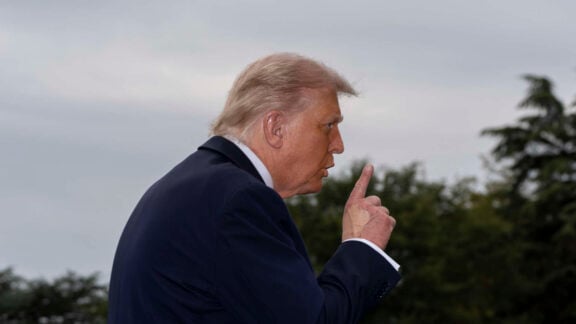There wasn’t a spare seat in the house when Professor Alastair Blanshard gave his inaugural lecture as the new Paul Eliadis Professor of Classics and Ancient History at the University of Queensland.
The topic of the lecture was ‘Why the Ancient Greeks Matter’. His answer to this question drew from material from such diverse sources as NASA space probes, drawings by Leonardo da Vinci, and World War II propaganda films.
Traditionally, when we talk about the importance of the Greeks we discuss their influence or recite their marvellous inventions and intellectual breakthroughs. Professor Blanshard decided to answer this question in a different way.
“Rather than thinking about what the Greeks did first, I want to discuss what the Greeks did best,” he said.
Professor Blanshard argued there were three elements from ancient Greek culture that we should especially celebrate. These were the importance they gave to ‘frank speech’, their ability to create a feeling of community, and their ability to give people ‘a sense of wonder’.
Ancient Athenians were encouraged to speak their mind. Political speeches were often surprising, disturbing, and unconventional, never dull. But it was not just in politics that we see the appearance of ‘frank speech’. Professor Blanshard drew attention to the tragic plays produced during the Peloponnesian War.
“This was a war of unprecedented scale and brutality. It rewrote the nature of Greek conflict. Never had a war lasted so long, never had so many died, never had the consequences been so great. It would have been so easy for the city to retreat into safe, comfortable, patriotic art. Instead, Greek drama took this fragile city and turned the screws.”
“Tragedy is the enemy of slogans. For example, you may think it is perfectly acceptable to live your life guided by the principle that you should ‘help your friends and harm your enemies’. Tragedy takes this maxim and shows just what a world governed by it would look like. In Euripides’ Trojan Women (415 BC), we see Troy in the aftermath of the Greek victory. The picture it paints of revenge and recrimination is a terrible one. Once noble women are parcelled out to cruel or indifferent masters. An innocent child is hurled from the battlements lest it grow up seeking revenge for its murdered father. Never has victory looked so inglorious.” It’s an astonishing play to stage during a time of conflict.
It is striking that, despite all this frank speech, a sense of community was maintained. Unlike today, loneliness was unknown in ancient Greece. You were surrounded by friends, family, or slaves. Every decision from marriage to sale of property to how you would vote in the Assembly was done in concert with others. Even the ‘grumpy old men’ of Athens were not lonely. They thrived on having an audience.
“Paradoxically, it is very hard to be misanthropic by yourself. It takes two to be grouchy.”
Finally, Professor Blanshard praised the ancient Greeks for their ability to create a sense of wonder and to take pleasure from the miraculous. It was this love of wonder that created the first histories. We can see this love through lists such as the list of The Seven Wonders of the Ancient World. Importantly, these lists were never exclusively Greek. The list of the Seven Wonders included the Great Pyramid in Egypt and the Hanging Gardens of Babylon. Greek historians recorded foreign wonders as well as Greek ones. “There is a deliberate desire to include non-Greek wonders into their accounts and this comes from a strong belief that wonder exists beyond and is not owned by any particular ethnicity or nationality.”
It was this breadth of approach that laid the foundations for the tremendous flowering of Greek civilisation in the wake of the conquest of Alexander the Great and the outpouring of extraordinary hybrid cultures that combined elements of Greek with Egyptian, Syrian, and Indian cultures.
Taken together, these virtues created a very special culture. “It was a conversational society, it always left the door open for the miraculous, a place where radical innovations in politics and thought could occur. It was, at times, braver than us and kinder than us.”








